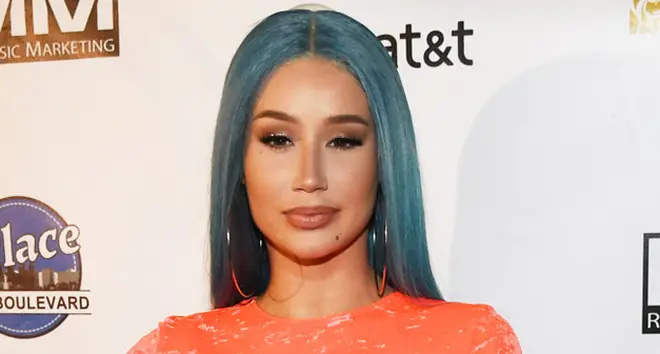On Air Now
The Capital Weekender with Meg McHugh 10pm - 1am
8 August 2019, 11:47
"I can't be that fucking sorry about it."
Iggy Azalea is in the midst of making her long-awaited comeback after a brief hiatus from the music biz. However, her latest comments on cultural appropriation probably weren't the way to kickstart her promotional tour.
The 'Started' rapper claimed that cultural appropriation is subjective and, um, yeah people aren't very happy.
READ MORE: Bhad Bhabie just roasted Iggy Azalea with the most savage tweet
READ MORE: Kendall Jenner accused of cultural appropriation after wearing an 'afro'
In case you need a little reminder, Cambridge Dictionary defines cultural appropriation as "the act of taking or using things from a culture that is not your own, especially without showing that you understand or respect this culture."

Iggy, who is Australian, has long been accused of appropriating black culture with her entire persona. So, during an interview with Cosmopolitan you'd think Iggy would probably try and clear some of that mess up…well, no. The interviewer noted that Iggy thinks cultural appropriation is subjective.
"You could ask one person of the same race, 'Does this affect you?' and they will say yes," she explained. "But another person will say no. They could be from the same place, same everything, but have different perspectives about it.
"I'm still going to make the same type of music and still be ridiculous and larger than life. So I can't be that fucking sorry about it."
She could have approached this in a much more respectful and humble way instead of being condescending to the culture that made her rich. Iggy seems like an overall shitty person.
— LIL POUT 😡 (@trbutemnyxx) August 7, 2019
So basically she’s gonna keep appropriating. Got it
— Dank Scorpio 🏁🌊 (@WestsideZulu) August 7, 2019
so you’re telling me iggy azalea, a white woman thinks cultural appropriation is subjective,,
— kay | iris lovebot (@ashandiamonds) August 8, 2019
Cultural Appropriation isn't *subjective* - your opinion of course, is. @IGGYAZALEA's so-called hot take on CA sounds very similar to "I have Black friends and they aren't offended." Personal opinions and preferences don't negate the reality of a matter.
— Morgan J 🥀 (@themorganjael) August 7, 2019
This recent Iggy Azalea interview where she says cultural appropriation is relative...umm yeah no. Gonna have to let you go 🥴 pic.twitter.com/22c7dNR3FT
— MookieJ (@MookieFly) August 8, 2019
She continued: "I would hit back and say, 'What about this that I had to go through?' because I wanted to talk so much about my experiences of things I didn’t have, and I think it felt like I wasn’t acknowledging that there is white privilege and there is institutionalized racism.
"It seemed to a lot of people like I was living in this bubble or unaware of all these things that people have to experience."